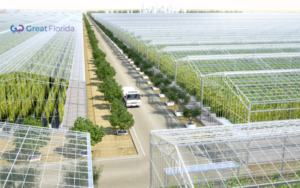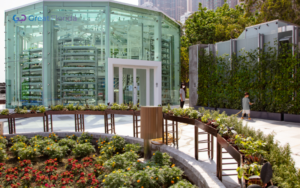Introduction to Good Day Farm
Good Day Farm is an illustration of the group’s long-standing support for environmental conservation, Provision of fresh produce that has health benefits to the consumers, and support for the local people. Indeed, sustainable farming has never been more important as the world continues to address environmental problems. This guide focuses on analyzing the practices used by the Good Day Farm and the advantages in terms of sustainability, for the consumer, the environment, and the communities.
What is Sustainable Farming?
Sustainable farming or sustainable agriculture is the form of farming that does not impact on the capability of farming in future generations. It deals with environmental quality, organizational financial returns, and social rights. The following principles are implemented at Good Day Farm as a way of operating a business that is right for people and the planet.

Key Sustainable Practices at Good Day Farm
Organic Farming
It is important to note that the farm has embraced the organic practice and therefore does not use synthetic fertility and pest controls. However, they use natural products tying them to the fertility of the soil, and use organic manure for controlling pests. There are several important benefits to this practice, including increasing the healthiness of crops, increasing the levels of biodiversity, and decreasing pollution.
Crop Rotation
Having understood the need to protect our soils from being depleted and diseases and pests from having cycles, crop rotation procedures are applied at Good Day Farm. They optimize soil nutrients and negatively affect the pests’ life cycle by varying the kind of crops grown on a given piece of land. Such practice can be leading to high-yield outcomes and insures against the excessive use of chemicals.
Water Conservation
Water is an essential factor in farming, and Good Day Farm has adopted several other ways to conserve water. This is a strategy such as drip irrigation that ensures water is used wisely with little wastage being experienced. Besides, they install rainwater harvesting systems to use natural precipitation properly.
Integrated Pest Management (IPM)
Integrated Pest Management is implemented in Good Day Farm to manage pests As mentioned on April 5th, 2012. The eradication approach involves biological, cultural, and mechanical management practices thus minimizing conventional chemical pesticide use. Particularly, through rodent and bird predators, traps and barriers, they safeguard crops without negative effects on the environment.
Soil Health Management
Soil health for sustainable agriculture is the most important factor. Some of the practices implemented at Good Day Farm to ensure that the land becomes healthy are use of wide rows and planting cover crops, and avoiding tillage. Through crop covering, we control erosion, and replenish the organic matter and structure in the soil, making ecosystems and crop production stronger.
Benefits of Sustainable Farming Practices
Environmental Preservation
Organic farming at Good Day Farm: making a positive impact to the world. Since they reduce the use of chemicals and encourage the variety in plants, they support and maintain ecosystems, conserve wildlife habitats and keep pollution levels low around them.
Healthier Food Production
People receive helpful incentives from the focus on organic and environmentally friendly agriculture. Farm produce from the Good Day Farm are safe food that reduces on the use of chemicals in farming and pesticides. Such a focus on quality not only extends to the improvement of nutritional value, the product also contributes positively to consumer’s well-being.

Economic Viability
Various findings expounded that adopting sustainable farming methods have long terms economic success of farmers. The features of Good Day Farm demonstrate the ability to increase yields in a more sustainable way than through chemical inputs to control pests and maintain soil fertility over the long term. Also, they get an opportunity to penetrate a market, which is rapidly growing due to increasing concern in organic foods products.
Community Engagement
The suppliers of Good Day Farm incorporate locally to help support farmers in the local area. People’s engagement to sustainable practices helps in the development of the economic fortune of the community through the provision of food produce and employment.
Challenges of Sustainable Farming
However, improved sustainable farming methods is not without its problems. Uncertain weather conditions, pest and disease control, and implementation costs associated with organic agriculture act as challenges. Nevertheless, challenges can be met at Good Day Farm as with passion, and due to the new ideas, it is quite possible.
Conclusion:
Good Day Farm is an example of how best farming practices can be used to produce positive effects on earth, health, and population. With consumers demanding more and more organic and sustainable produce; farms like Good Day Farm help set the standard for the industry. That way, they are quietly enhancing the well-being of our planet and the capacity of agriculture to prevail through the inevitable upset we inflict upon it.








